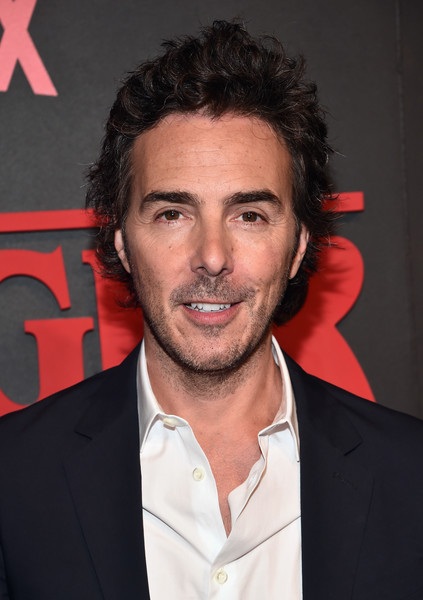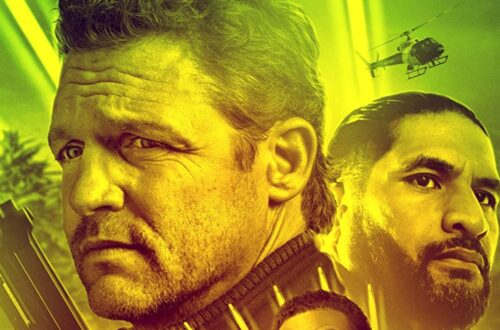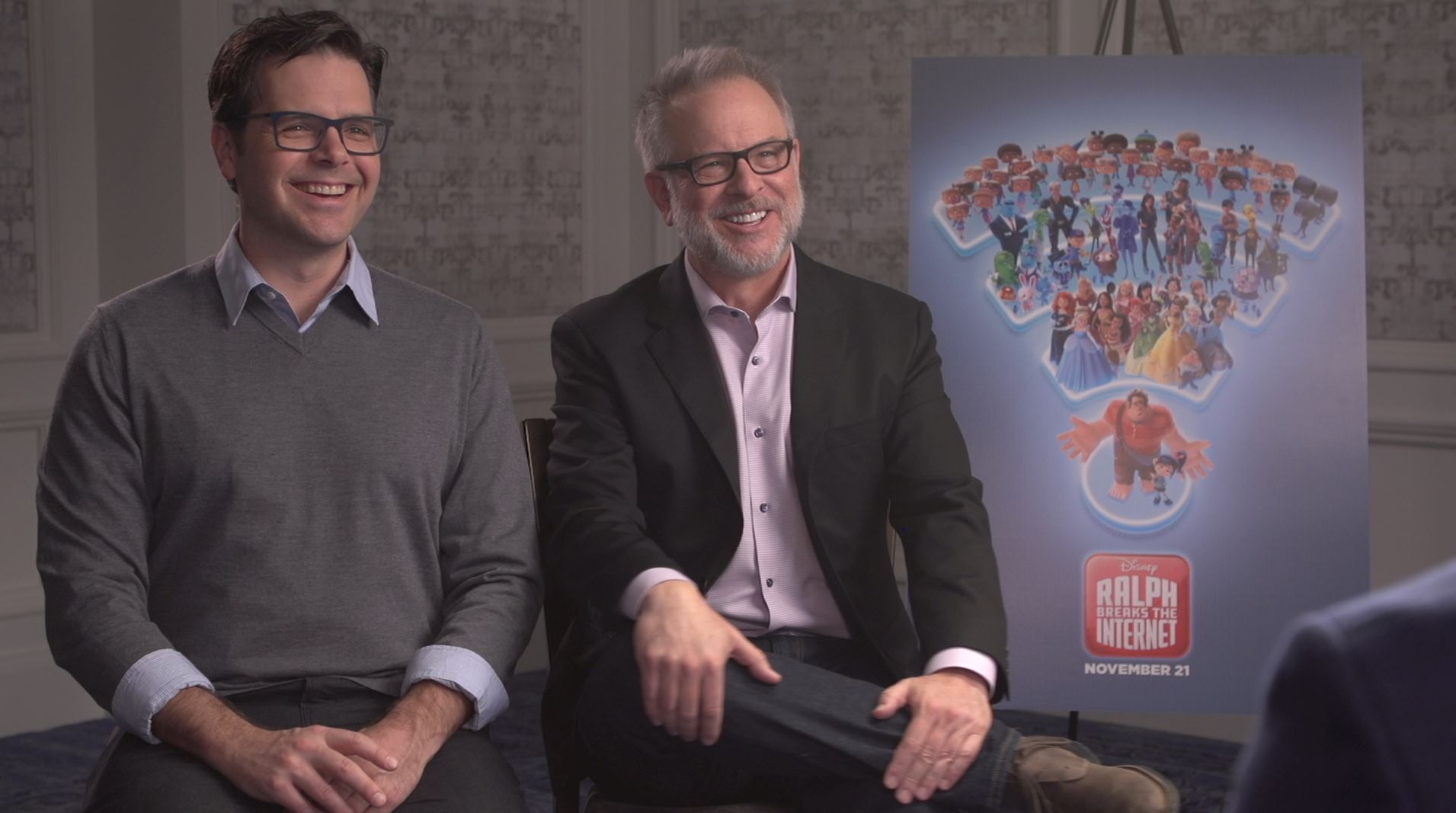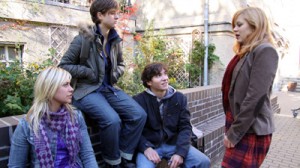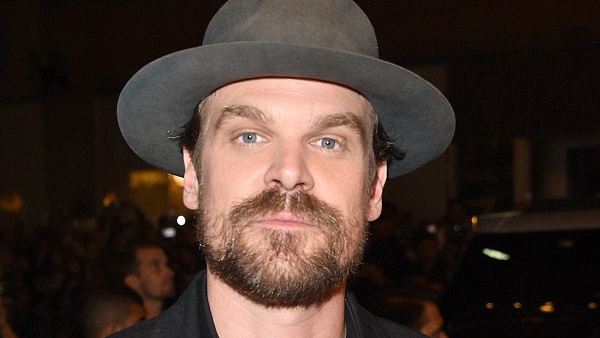 We hope by now you have been able to check out the Netflix show, Stranger Things. An exceptional production, and even as a throwback yarn, it is far more than just the sum of its superficial ’80s parts. Aside from the story, and how expertly this is told, the characters truly grab you (check out our glowing review of it here). And if you’ve already seen it, you know all the hype is justified.
We hope by now you have been able to check out the Netflix show, Stranger Things. An exceptional production, and even as a throwback yarn, it is far more than just the sum of its superficial ’80s parts. Aside from the story, and how expertly this is told, the characters truly grab you (check out our glowing review of it here). And if you’ve already seen it, you know all the hype is justified.
Of the many things the show has going for it, acting is probably the most noteworthy. Top of that list of talking points is, without a doubt, seasoned character actor, David Harbour. You might not realize it right now, but you’ve seen David Harbour a lot – he’s worked with Al Pacino, Madonna, Russell Crowe, Liam Neeson, and Denzel Washington – but after seeing him do such a great job in Stranger Things, you’ll want to see him in everything.
Whether you like, or dislike police chief Jim Hopper (c’mon, how can you not love that guy?), his character is unique, layered, and 100% Harbour’s creation. I spent close to an hour talking about what he brought to set each day including his now iconic hat (more on that below).
Normally, we don’t often include spoilers in our interviews, but I didn’t want to edit any of Harbour’s great responses. So, be warned…spoilers ahead.
GoSeeTalk: Let’s talk about the public’s response to Stranger Things. The show debuted on July 15, and since then, your social network has blown up. You could be cast in a James Bond film, or be directed by Sam Mendes, then you do this small show on Netflix and become an overnight sensation. How has the reaction been on your end to show, your impression of it, and the ride thus far?
David Harbour: The most interesting thing has been the whole ride. As you said, I’ve done these interesting projects and people have said, “you’ve done really good work”, or “you’re a really good actor,” but with this, I feel like we’ve really done our job. I get these tweets, and I see that people are genuinely moved by the character. It’s not even the acting, people just think Hopper’s a beautiful guy. I’ll get tweets from guys in the Midwest and they tell me, “Hopper made me want to be a better man.”
Things like that are the only reason I went into acting in the first place. In a hokey way I thought I could change the world. I thought I could help people live their lives better through some sort of catharsis through what they saw. So the fact that that’s the reason my social media is blowing up is the most gratifying thing, not that I’m doing something cool. It’s more that people are moved by this.
So I’m old enough to know that it’s not going to last, but that I can just sit back and enjoy it for what it is, as opposed to having to have it translate into something bigger or another job. I can be happy and think that we did a good thing, and that we put a good thing out in the world which is amazing.
Each of these characters were crafted so well, the story told so perfectly, and paced exceptionally that while it might not have worked in another time period, as a character, Hopper transcends his place in the show. He could have been a knight, he could have been a WWII pilot, he could have been anybody – he’s so captivating. But while the story stars kids, it’s not all about the kids.
Yeah, exactly. We wanted to create something that anyone could watch with their 12 or 13 year old son or daughter, but that you yourself wouldn’t feel condescended to. There’s a rich emotional core to this that the Duffers brothers set out to get, and we really achieved it.
Speaking of the Duffers, when someone asks you to play this apathetic police chief, and one that people don’t get to understand until much later in the show, how did you respond, and what did you bring to the character that wasn’t on the page?
What I love about Hopper so much is, as you say, we get to take people on this journey, and it’s because he’s a jerk. He’s a drunk, he’s addicted to things, he makes fun of people, and he hates children at the beginning. That’s something that audiences will have trouble getting behind, but it’s because he’s so broken. One of the things
that I had struggled with as an actor in my 20s and 30s is that a lot of times I think we view actors as being above you, or that they’ve got things figured out, or that they’re smarter than you. I certainly do anyway. But one of the things that I learned into my 30s and, now, my 40s, I realized that we are all broken people. I am too.
I’m as broken as anyone else, and I have as much vulnerability, and needs as anyone else, so that’s what I wanted to bring to this guy. I didn’t want him to be a classic leading man who has it all put together. I wanted Hopper to have eaten one too many donuts, and have some love handles, and be a smoker, and give him a shtick and sarcasm which doesn’t take him very far. And then I wanted to seem him transform.
One of the things I think that we need in society now is more of a feeling, when we watch movies and television, that we can be the ordinary man or woman who does the extraordinary thing as opposed to someone who works out all the time, and is somehow above us and is always taking heroic action.
I like the idea of someone who has something to lose, and I don’t think you see that when you go watch a Marvel movie. You feel amazed and blown away by those people, and the size of the
story, but I don’t think you have that identification where you could say, “That guy’s like me! Hopper is kind of a jerk, he doesn’t treat himself well or take care of himself, but look what he did!”
So, to me, that’s the real joy in what I wanted to bring to him – the ordinary man quality. I relate very much to Hopper even if I’ve never lost a child. But, still, I certainly have had these existential moments where I wonder what it’s all about. I think a lot about things like “why am I still around, and what am I doing with my life?” I ask that of myself, so I really wanted to bring those questions to Hopper. I think it’s fun to see leading men and women asking the same things, and that’s when it becomes real art.
It’s exciting because your character wakes up, brushes his teeth, then has a cigarette and a Schlitz malt liquor – it really says a lot in just a few moments. But his arc comes exceptionally fast. Hopper dealt with overwhelming odds, but he didn’t have to earn any of his characteristics, he just needed to untap them to become the hero. Even your interactions with the kids were great. You go from, seemingly, not wanting to do your job to this one scene where you punch Jonathan in the chest and tell him, “your Mother needs you.”
That was an interesting scene and I’m really glad you noticed that. My whole family is from Houston, TX and I remember being 5 years old and crying, and my grandmother got really mad at me. I feel like we’ve become a society now where everyone is seen as a little wet, and that crying is a good thing. I wanted Hopper to be a product of his time, and this era where you don’t cry, men don’t cry, you fucking get things done, and I wanted him to be hard.
That scene with Jonathan was very fun to play in a certain way. Even though this guy has lost his brother, I think what Hopper is saying to him is, “man up.” I had this very old-school idea which is suck it up, and get shit done. Don’t indulge in your feelings or your little fantasies. So that punch, and me grabbing him, that was very spontaneous and came out of the moment. But I thought it was very indicative of who Hopper was.
Well it did resonate with me. Those are the little things that I like to look for, and so I’d like to know what other little flourishes you put on the character – whether planned, or seized in the moment – that the Duffers liked enough to roll with it.
I was involved very early because Winona Ryder and I were the first to sign on. We went to L.A. and met each other, and then we had meetings in the writers room where I talked a lot about the character. I think that when you have a loss like that, which is in comprehensible, it messes you up big time. This guy was a big city cop, so his world was defined by good guys and bad guys, and you can
go catch the bad guys. When there’s injustice, it’s a very clear injustice, and you get to catch him and put him in prison. Then Hopper moves into a situation where his daughter has cancer when she’s 5, and she dies, and the only person he can blame is himself because he created this child. In his mind, he’s the bad guy.
That guilt is carried with him but it manifests over a period of five years. It’s not like he’s carrying this daily, because he develops techniques to deal with it, and one of them is sarcasm. Or you develop an intense addiction. Sometimes, you also just lash out in many ways.
I think that we had a lot more tolerance for those type of characters back in the ’70s and the ’80s than we do today. I think we want people to be much nicer right off the bat, and I think that it was very brave of the Duffers to allow me to have this guy who has all these vices.
We added the thing with him sleeping with inappropriately young women, a number of them, even the librarian, [laughs] but it’s like Hopper just can’t deal with being close to someone so he screws young girls, smoke cigarettes, and pops pills. Letting me play that kind of character was a very brave move, because that kind of man is so easily passed over in our society today. We want people to be so much nobler than they are in film and TV, and I think they become unrelatable.
You bring up a good point too, because that’s why people seem to relate more to the villain, or maybe Batman, as opposed to Superman. People who are without fault, or weakness, are tough to get behind, and, really, there’s just no such thing as a Superman.
Now, aside from your role, talk to me about big picture and what the Duffers were going for. It’s their story, they directed six episodes, and Shawn Levy, as producer, directed two, so how did you take direction from different people with different experiences and helped tell a cohesive story?
To be honest, I have a pretty healthy ego, and I like to think that I’m pretty smart. [laughs] But when I was in the room with the Duffers, I really felt like they were the smartest guys in
the room. That is an interesting feeling. They are young, but they are very strong, and very geeky and big into film. But they know what they want, and they have big hearts, so whenever issues would come up, and they rarely would come up, I would defer to them. It’s not often the case in my career, but I would listen, take their lead, and say, “you guys know the story better than I do.”
But it rarely came up because I think I got just one note during the entire time we were shooting. I think they just trusted me, and we were on the same page, having loved the same movies and the same type of stories. We were just completely on the same page. We just ran with it, and when I started to run with it, I think they felt that I was bringing something they hadn’t even expected so they just didn’t want to get in my way. I felt the same way about them. What they created is so rich, and I told them I just wanted to help bring this to life, but I don’t want to get in your way. So it was really a great collaboration.
Now Shawn, he is a wonderful director, and a very creative guy, and he’s also just a wonderful facilitator. I think the Duffers and I suffer from a little bit of a lack of social skills, [laughs] we’re just emotional people, and have really big hearts, and Shawn is just very savvy and he’s very good at getting people to collaborate. He’s so necessary and it’s so wonderful to have him on board to really navigate the stuff that we had to navigate, and help the Duffers through things they hadn’t yet experienced before.
In the show, you dive back into a decade in which you have already lived. You also deal with children who probably can’t fathom the idea of a time when the world was far less tech-savvy. How was it getting back into this period piece – which is like a love letter to Steven Spielberg and Stephen King – and what was it like acting with these adorable kids?
It’s funny, the kids had certain references that I didn’t think they would even understand. Even before the newest Star Wars came out, they all loved Star Wars. And I would ask them, “how do you guys even watch Star Wars, you know they were from the seventies and eighties right?”. But they all knew about it. They had lots of references, but there were some things they still didn’t understand, like what a record player was, and stuff like that. That was pretty funny. [laughs] But for me it was just a real fun journey back because, for instance, in Joyce Byers’ kitchen, (played by Winona Ryder), she had this real long telephone cord.
I remember my mom being on the phone all the time with those janky cords that would get all dirty and messed up, and you’d have to be careful not to trip over it. So something small and insignificant like that really helped bring me back to when I was like 7 or 8 years old. So it was all very enjoyable and did make me feel like a kid again.
Speaking of the kids, they had really great chemistry together, especially Finn Wolfhard, and Millie Bobby Brown. Watching this a second time through I think Gaten steals all the scenes that you aren’t in. How was it on set? Did you do screen tests with them?
No, I didn’t meet them that early. The Duffers sent me their audition tapes after they were cast, and I thought they were so extraordinary. But characters work subconsciously on me just a little bit, and I don’t really fight that anymore, so my interaction with the kids was always strange. Hopper is a guy who lost a kid, so every time he’s in a room with a child, he feels the guilt again, and therefore he gets angry.
But he’s not self-aware enough to even realize that he he just can’t stand kids. Like that first scene that I have with the kids, he’s just so annoyed with them, and personally, it’s just really difficult because these kids are adorable. But they would also do things on set which kids do, like fart, in the middle of a take, [laughs] because they can’t control their bodies, and stuff like that which would drive me crazy. But they were really charming actors, and I had to work really hard at finding things to dislike about them.
So, in a weird way, I didn’t get to have the experience that you as an audience member gets to have – of seeing them as adorable and wonderful – because I am at work and I’m trying to create this guy who has to go through this experience. So I hope that in the second season, if we go back, Hopper’s heart has softened because of all this, and I will be able to be in a scene with Gaten and be an avuncular figure as opposed to a jerk.
I love that one scene where you come in and rescue the kids on the bus. You expect that 011 would telepathically destroy the agents, and then you come in with your big hat and big jaw to save the day and I like how the show continually surprised me. More importantly, it had fun with the material. People say that this is reminiscent of E.T., and Close Encounters of the Third Kind, but really, this is a lot like Jaws. It has some fun, but it still takes this takes very seriously.
Man, I am so glad to hear you say that. That is exactly what we wanted to do. Exactly.
Since you hit on it a couple seconds ago, I have to ask. What’s going to happen in season 2, and what happened when you got into the car with the agents at the laboratory?
[Laughs] That’s what everybody wants to know. [laughs] Basically, the scene with Modine, where he gives me my cigarettes, and I give up 011 and get to go find William Byers by going through the rift, that scene cuts out before you get to hear the rest of the deal they make. There’s some kind of further agreement he’s made with the lab. Obviously, he’s going to protect it, because, like he tells Joyce, if you want to find Will, act like none of this ever happened.
So that deal is maybe more complex, and maybe the fact that Hopper has gone through the rift and come back, there’s something about the lab that we’ll explore in season 2 and may relate to the Eggo waffles that you see me putting in a box at the very end. But he understands the Nether, and has come back like no one really ever has, and he understands something about 011 and where she really is.
I think what we wanted to set up was that Hopper is still the same. Even though he is heroic, he’s still the guy you met in the first episode. You’re not sure you can totally trust him, and I think you want to start off the second season wondering if is this guy Lando Calrissian, but hopefully he’ll become Han Solo.
I read an interview you had in 2010 where you said you’re glad to get back into stage acting because you’re getting “flabby” in film acting. Will you elaborate on that a little more?
Is that what I said? [laughs] Yeah, theater is what I consider more like a marriage, and film is more like dating pretty girls. In theater, you have to tell the whole story, six nights a week, sometimes eight shows a week, and your worst performance still has to be pretty good. In TV, and film, you can do eight takes, and just use the best one. But
on stage, every take is going to be used and people are going to see it. So when you are telling the entire arc of a story, you are taking somewhat bigger risks. In film and TV, they don’t want to cast you too far from what you are.
That’s kind of what happens, and type-casting only makes it worse. But on stage, you could do a Molière comedy, or a farce, or play Hamlet. You could even do poetry. And they are all so different from your normal, everyday life that you need to stretch yourself in a big way. And I do find that actually augments my film work when I’m able to take those risks in theater and stretch myself because I can see more character development and see further into the page as opposed to just playing David Harbour.
Suicide Squad finds you, for a second time, in a David Ayer film. Your role in End of Watch was probably the worst recruiting video for the LAPD. [laughs] But how do you see your career developing? Having played Hopper, who is the latest in a series of imperfect or offensive characters, and as you’ve also played villains, is Stranger Things a turning point for you to be more of a nice guy, or take leading man roles?
I definitely think that with Hopper, it really marks a new phase in my career, and my personal development as well. I feel like villains are, in many ways, children. I think that heroes, as long as they’re not too narcissistic, are more like grown ups, and that’s where I want to be. I want to play grown-ups, because I am, and are becoming more of a grown-up.
Now that Hopper has taken a life of its own, and as you’re seeing many depictions of characters in fan art, and Stranger Things posters, there’s probably going to be a lot of Hopper Halloween costumes. So help me put together a spot-on Hopper outfit. What are the essentials, and does it start with the hat?
[Laughs] Yeah it has to start with the hat, [laughs] and very quickly after waking up, you’re going to need that cup of coffee, and that donut, a nice cigarette behind the ear, and a pill bottle in your pocket. [laughs] Then I think you’re good to go.
I saw your reply to one of my tweets and you hit up the Worth & Worth hat shop in New York City. Give us a little backstory on the crafting of that hat. It is pretty iconic.
Totally! Orlando Palacios at Worth & Worth designed that hat for me. He actually made a hat for me for the Black Mass premiere in Toronto. I fell in love with him and his shop, so much that I went back to him when we were developing the character of Hopper, and on paper, there was no hat for Hopper. So I told the Duffers that I wanted an iconic hat, like the pork pie in The French Connection, or Indy’s fedora.
I went to Orlando and said, “hey, this guy was born in 43, he’s 40 years old in 1983, let’s talk about a hat for him. Maybe he went to Vietnam, or maybe his dad was in World War II.” And Orlando says, “great, maybe it’s his dad’s hat. There’s a hat called the open road that Eisenhower used to wear.” So we developed this open road hat that was great, and we had three of them made for the character.
Orlando is an extraordinary artist, and he’s really detail-oriented, so if you look carefully at the hat, you’ll see the remnants of a band, which is an invisible band – that’s created when things are faded when the Sun hits them. So we decided that at one point it was his father’s hat, and then the band fell off, but Hopper still wears it.
That was really important to me, and I felt like it was something I could mess around with, and it felt like an old glove. But it also felt like something he could hide behind. In many ways, Hopper likes to hide and he doesn’t want people to see the pain that he experiences every day and doesn’t want people to see what he’s feeling. So he has this big wide brim, a 3 inch rim that he can pull down and hide behind.
Thanks to David for his time. Stranger Things is available on Netflix now. For those of you who can’t get enough, and have burned through the show at least two times, here’s some good news – the Duffer Brothers are working on Season 2. We’ll keep you posted as soon as we get any info on that.
And if you really like Hopper’s hat, Orlando Palacios is planning to release the “Hopper hat” at his Worth & Worth hat shop – click here to check out his site. Also, when it gets closer to Halloween, we will post our tips for assembling a top-notch Hopper costume with more input from David and Orlando.
